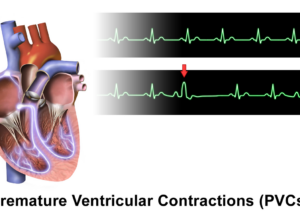Are PVCs worth being scared out of your wits over?
Below are links to some of the premature ventricular contraction articles on this site.
All are interviews with Pam Marcovitz, MD, an internal medicine cardiologist with Frankel Cardiovascular Center in MI.
Can PVCs be life threatening if your heart is otherwise normal?
How often must PVCs occur before they begin harming the heart?
If you’re having PVCs while calm, can they still be from stress you had a while ago?
How to Calm Yourself from Anxiety that Might Be Causing Your PVCs
To calm yourself when worrying about premature ventricular contractions, start by taking slow, deep breaths to relax your body and steady your heart rate.
Practice mindfulness or meditation to shift focus away from intrusive thoughts.
Go on a kickass hike. This worked for me during a time that I was getting anxious about palpitations.
After completing the hike two hours later, I couldn’t help but think, “Gee, I must have a pretty healthy heart to have done all that with energy to spare!”
- Use physical activity as reassurance, but NOT as diagnostics.
If you’re getting a thumping or fluttering heartbeat that doesn’t seem tied to anxiety, it would be smart to get checked out by a cardiologist.
Neverthelss, you should keep exercising or start an exercise regimen: both strength training and some form of aerobics.
If you develop chest pain or nausea while exercising, then quit immediately and consult with your doctor.
How’s your sleep lately? The heart loves sound sleep. Make sure you’re doing all you can to get restorative sleep.
Caffeine and alcohol can bring on palpitations. Cut back on caffeine, and ideally, how about abstaining entirely from alcohol?
Though that may seem like a formidable task, at least make a high effort to cut back on liquor.
Don’t use alcohol as an excuse to bond socially in groups.
Another thing you can do to combat anxiety is to find a new hobby — one that relaxes you and takes your mind off your worries.
Or maybe you can revisit an old hobby that you haven’t participated in for years, such as playing a musical instrument, drawing or listening to a particular form of music.










































